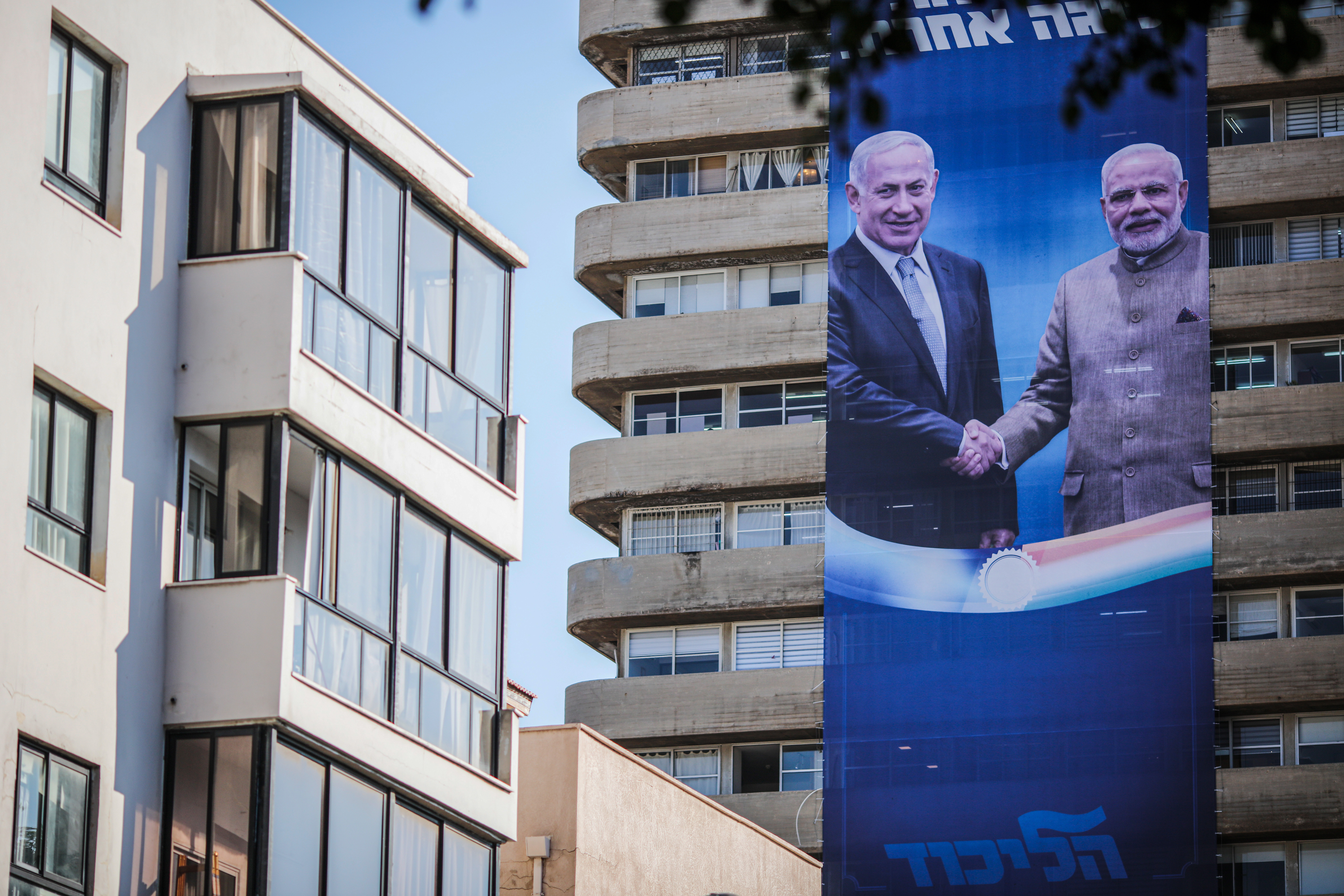Israel
India Outs Its Israel Affair

The arc of India-Israel relations reflects the evolution of Indian foreign policy, from a world view infused with idealism to one more driven by hard-nosed interests. India voted against the establishment of Israel in the United Nations in 1948, largely because it equated religion-based statehood with Pakistan’s creation. For half a century India avoided full diplomatic relations with Israel but for a different reason: its ties with the Arab world and opposition by its Muslim community. Given its economic and strategic isolationism, this was easy to maintain. There were a few attempts, notably in the 1950s, to engage with Israel but these failed to gain traction.
The collapse of the Soviet Union in 1992 and the signing of the Oslo peace accord in 1993 gave India the political cover to normalise relations. But there were other more material concerns including the need to find a new arms supplier and upgrade ties with allies of the United States. India had recognized the Palestinian state in 1988 and the new relationship with Israel, if anything, reinforced its commitment to a two-state solution. Nonetheless, the bilateral relationship with Israel expanded dramatically particularly in the field of defence and security. India remained skittish about acknowledging the extent of its relationship and high-level visits took place only when the right-wing Bharatiya Janata Party was voted into power. Israel made it a point to go the extra mile with India – providing emergency arms shipments during the Kargil War and assisting India with its nuclear arsenal.
Prime Minister Narendra Modi’s election in 2014 saw India declare publicly what it was already doing in private. One, India would reciprocate the strong support it had received from Israel and do so openly – becoming more supportive of Israel’s hard responses to terrorist attacks. Two, it de-hyphenated its Israeli and Palestinian policies. Modi underlined this by making separate state visits to the two countries. Three, India made it clear its recognition of Palestine encompassed only the secular Palestinian Authority, not the Islamist Hamas regime of Gaza. India’s relationship with Israel has continued to grow. By some estimates, India buys nearly 40% of Israel’s arms exports. But Israel is also an important agricultural and water partner, and a bond has grown in the start-up sector. Tens of thousands of young Israelis visit India after completing military service. Polls show India and Israel give each other among the highest approval ratings of any other country.
The Modi government was able to combine its open-embrace Israel policy with a deepening of relations with some Arab countries like the United Arab Emirates, Saudi Arabia and Egypt. This was an outcome of India’s economic trajectory, closer ties with the United States, and the Abraham Accords process embraced by Abu Dhabi and Riyadh. This paved the way for these governments to announce the creation of the I2U2 or IMEEC,* strategic infrastructure and trade coalitions designed to further regional stability.
India’s primary concern about the latest Gaza conflict is whether it will lead to a breakdown of the I2U2 and IMEEC. New Delhi had its doubts about the Benjamin Netanyahu government’s support of Israeli settlers and undermining of the Palestinian Authority. India’s voting record at the UN and public statements have reflected all these. The Modi government has condemned Hamas, supported Israel’s right to defend itself, iterated its belief in a two-state solution, and given only conditional support for a ceasefire. But it supported a UN resolution condemning Israeli settlements in the West Bank in line with its pro-Palestinian Authority position. India’s view of the Israel-Palestine issue has remained consistent for the past three decades: the new twist is that India is more willing to openly say what it believes and why. However, New Delhi also remains disinclined to the idea of a more active role in the region including being part of any peace process.
*I2U2 stands for Israel, India, United Arab Emirates and the United States; IMEEC stands for India-Middle East-Europe-Corridor.
Pramit Pal Chaudhuri is a Fellow at the Ananta Aspen Centre and South Asia head for the Eurasia Group.
